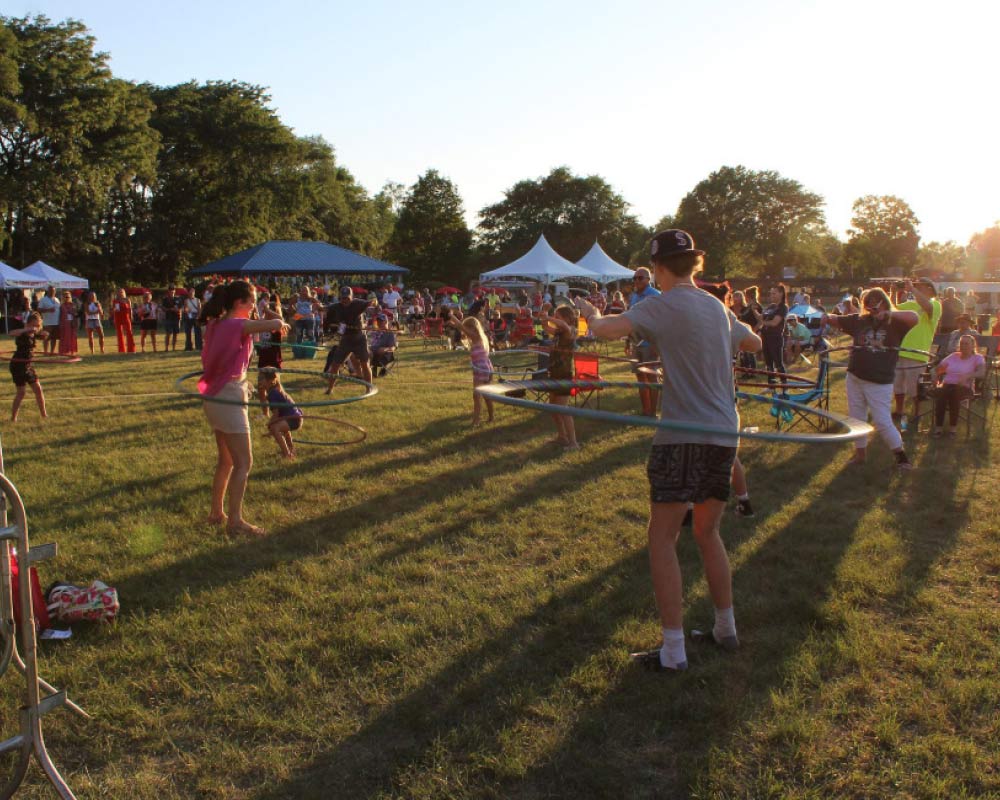A Rockford tradition is helping people tune into a more peaceful, meaningful and spiritual side of Christmas with the music of George Frideric Handel’s “Messiah.” The Rockford Choral Union’s annual performance returns at 3 p.m. Nov. 25 and Nov. 26 at Emmanuel Lutheran Church, 930 Third Ave., Rockford.
“Messiah” is a gift, says Conductor Michael Beert.
“We always give this gift to the community to help celebrate Advent and the Christmas holiday,” he says. “It’s an important message to those in need of spiritual renewal.”
The production features a chamber orchestra, an organist, four soloists, a harpsichordist, and voices representing more than 30 churches and faith organizations in Rockford and beyond. There is no admission fee, however, the Choral Union will accept a free-will offering.
Soprano Susan Nelson sang with Rockford Choral Union in 2019 and 2022 and has performed in the choir and as a soloist for “Messiah” many times. She says it always offers something new to audiences, whether they attend every year or hear it for the first time.
“For so many people, ‘Messiah’ is a tradition,” Nelson says. “Even before I started singing, I was familiar with the music because it has been a part of my whole life.”
Rockford Choral Union, at one time known as the Lutheran Choral Union, was established in 1945 for the sole purpose of performing “Messiah.” Seventy-eight years later, the annual tradition has been heard 199 times, except in 2020 during the pandemic.
“Messiah” is an English-spoken oratorio. The musical composition tells a sacred story with voices and orchestra about man’s sinful nature and Christ’s redemption. With 79 scripture references from the Old and New Testaments, Charles Jennens, an author and friend of Handel, compiled the text from the King James Bible and from the version of the Psalms included with the Book of Common Prayer. Part I of “Messiah” begins with prophecies of Christ’s coming and the annunciation to the shepherds. Part II focuses on the Passion and ends with the famous and well-loved “Hallelujah” chorus. Part III covers the resurrection of the dead and Christ’s glorification in heaven.
First performed in Dublin, Ireland, in 1742, the work has become one of the best-known and most frequently performed choral works in western music.
Beert says Handel was commissioned to write the piece for the opening of an orphanage and hospital in London and worked on the music nonstop for several weeks.
“He was not only meeting a deadline, but his composing was also a true moving of the spirit,” he says.
Handel wrote the oratorio in 1741, after coming to London in the 1700s to write opera. He was well-versed in Italian opera, which was the focus of his career, but then the musical tastes of audiences changed. New operas were being written in the form of English folk tales and the changes in the monarchy wanted music to express a move toward Protestantism.
“Handel had to adjust,” Beert says. “Instead of writing opera, he reinvented the oratorio, making it something the aristocracy could support and enjoy. After hearing the first ‘Messiah’ performed in London, King George II stood up for the Hallelujah chorus because he was so moved by what he heard.”
Oratorios differ from opera in that they are religious in topic and require no scenery, costumes or acting.
“Handel was all about trying to express what was happening in Jesus’ life from the prophecies of the Old Testament to Revelation, through words and music,” Beert adds. “Baroque composers, like Handel, were most interested in conveying emotion as a story is told.” ❚
Rockford Choral Union Tradition Continues
















